Blog May 9 - Kees
Ida in Study Trip United Kingdom 2024 2024-05-15 11:40, laatste update 2024-05-15 11:40
Nederlands volgt Engels
Today was the day of our second to last institute visit: a trip to the Jodrell Bank Observatory. This would also be my second and last post to this blog. Let's go through my day.
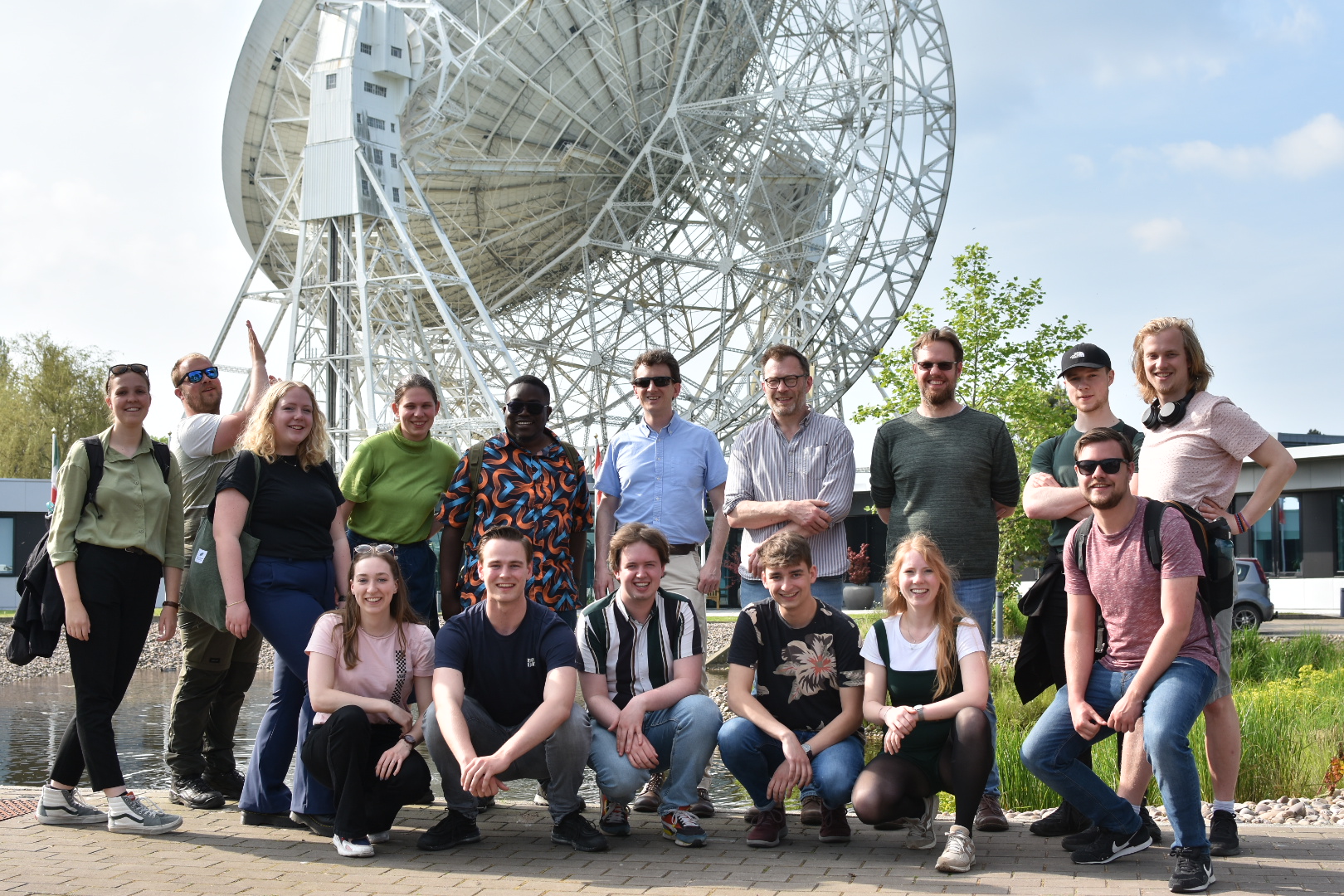
For me, the day started with breakfast at the Ford Madox Brown, a restaurant that's part of the Wetherspoon chain. Although this is not an ad, I thought I should mention their existence, as their low prices together with their okay food quality are outstanding. That might be useful for any future trips ;). Breakfast with Pjotr, Marcel, Ties, Romy, Saskia, Thomas, and Nino was a great start of the day.
After breakfast, we gathered at the apartment and left to catch a bus towards Manchester Piccadilly station. From there, we took a train to Macclesfield from where we would be picked up by a hired coach to get to the observatory. Our stay at the station was a little longer than expected, though, as the coach had a flat tire and a replacement had to be arranged. This gave me a solid twenty minutes to roam around town. So, while the rest of the group enjoyed the burning hot Sun around the station, I decided to climb the mountain that they call town center. Passing churches, street musicians, and experiencing just a generally good vibe, I found a small park with a view of my fellow colleagues down at the station. I sat down and enjoyed my shade until a cat decided to stroll around the park. "Ps ps", and the cat came for some petting. See the photo attached.
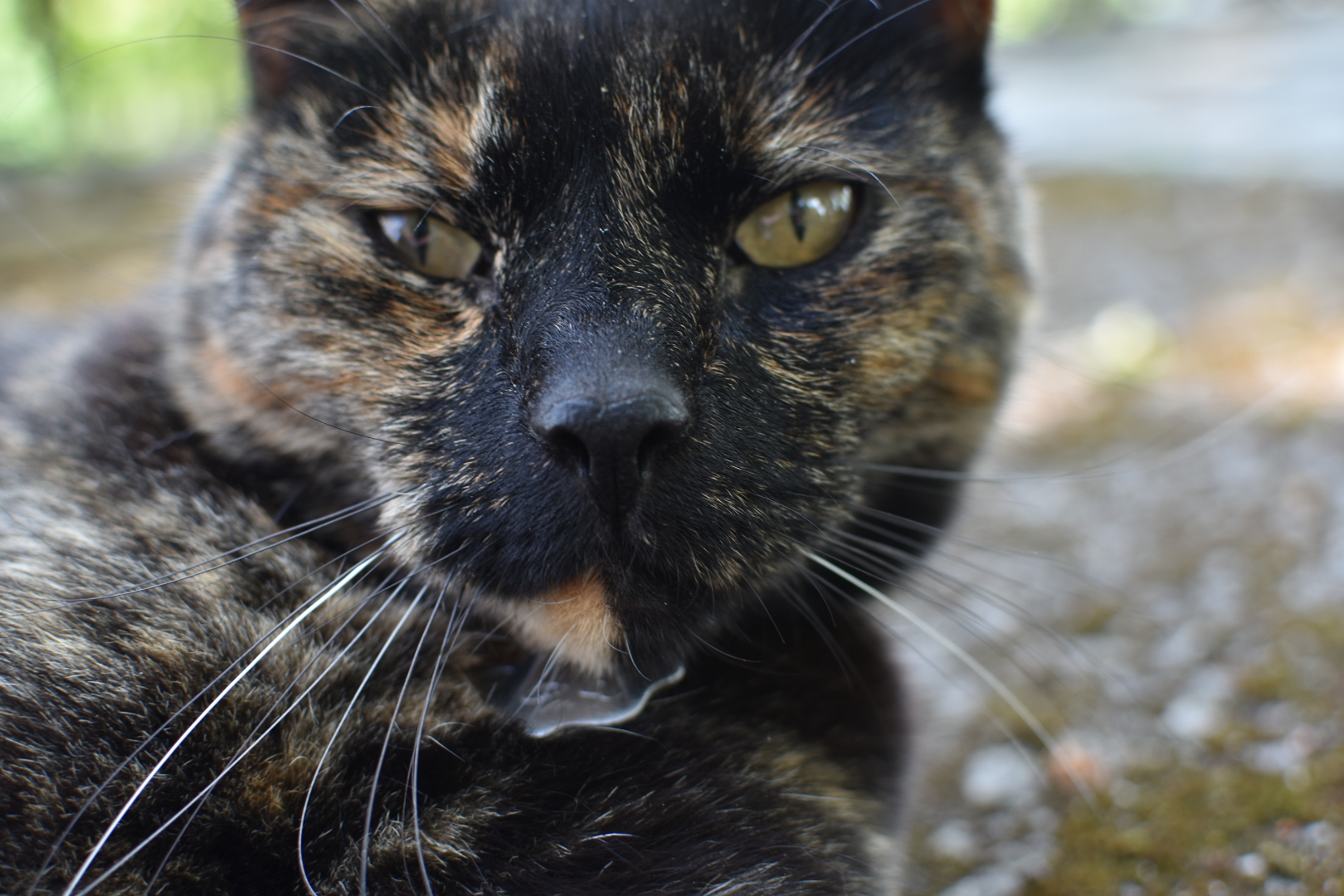
Then, finally, we got onto the coach and travelled across Belgium -- at least, that was what the roads felt like. Through fields of sheep, we were suddenly greeted by the sight of a telescope and a sign telling us to switch our phones off.
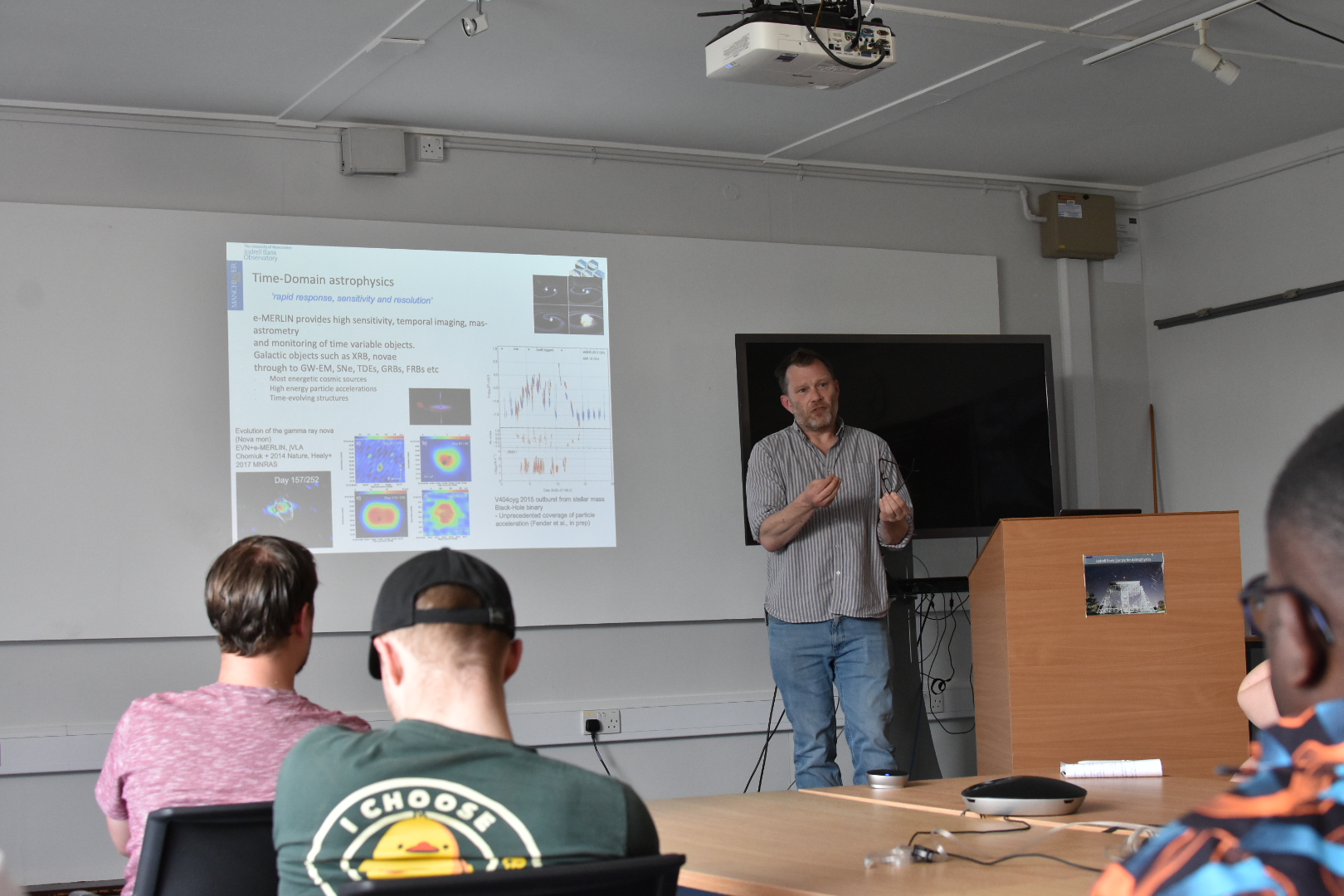
In a radio-quiet forest quite far from Manchester, a flock of radio telescopes is found surrounded by a herd of sheep. Buses full of school children visited the observatory's visitor centre, but we got the exclusive behind-the-scenes tour. After a quick lunch with two of our guides, Justin and David, we were let into a lecture hall with a view of the great Lovell telescope for two talks about what they did there. Although a bit distracting, the huge telescope did an impressive 360° turn during the presentation. The observators' main focus was the investigation of pulsars, rapidly spinning neutron stars that emit electromagnetic radiation due to their motion and magnetic field. The second presentation mostly entailed the observatory project e-Merlin, an array of radio telescopes Lovell was part of. Funnily enough, the second speaker was a Dutchie.
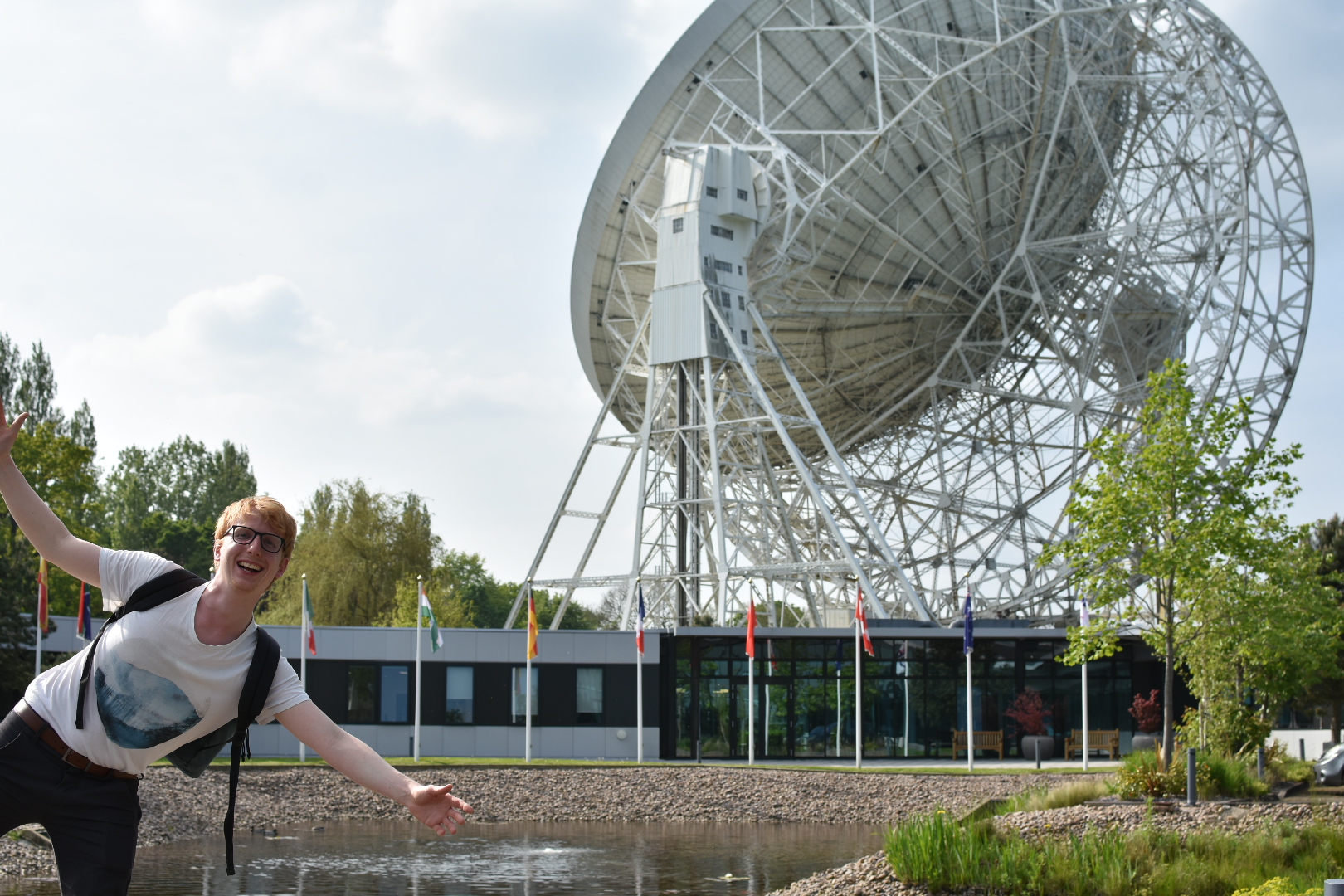
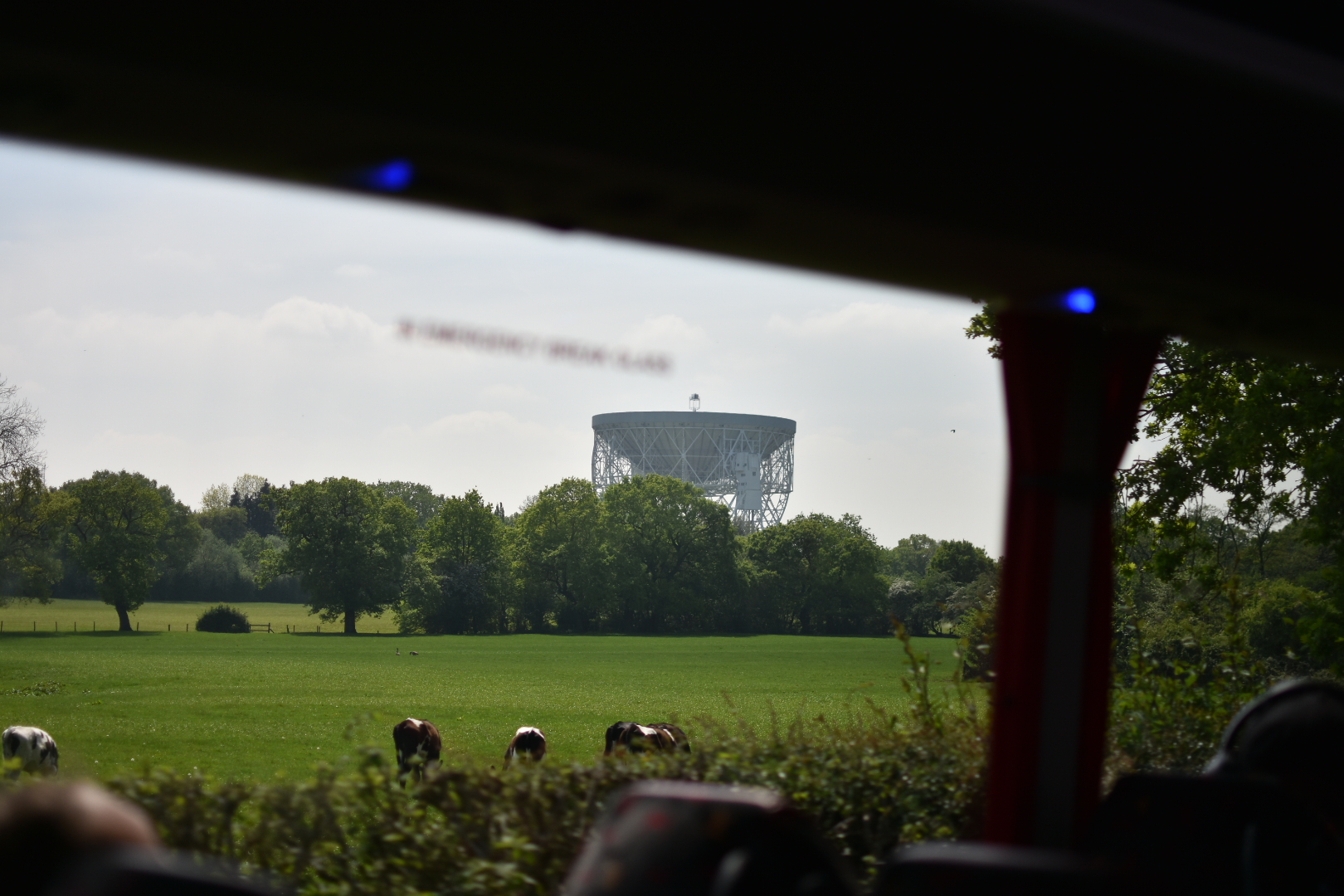
After the presentations, we got a requisite tea break, with the option of tea, tea with sugar, tea with milk, and tea with milk and sugar. In the tea room, a microwave oven was found in a heavy-duty Faraday cage. Being a radio-quite zone, this made sense, but the story behind this was even better. Justin told us about the observation of an irregular spike in radio signal at the site. A then PhD student that now still works there, Mitch, decided to look into this. They ruled out some interference on the site. They tested the effect of turning on a microwave while measuring. The frequency was too high to explain the signal. Other equipment was also tested. It must be an unknown effect, a hypothesis which was strengthened as other observatories saw the same effect, but at different times. The signal even looked like something from far away due to the dispersion-like chirp in it's arrival time.
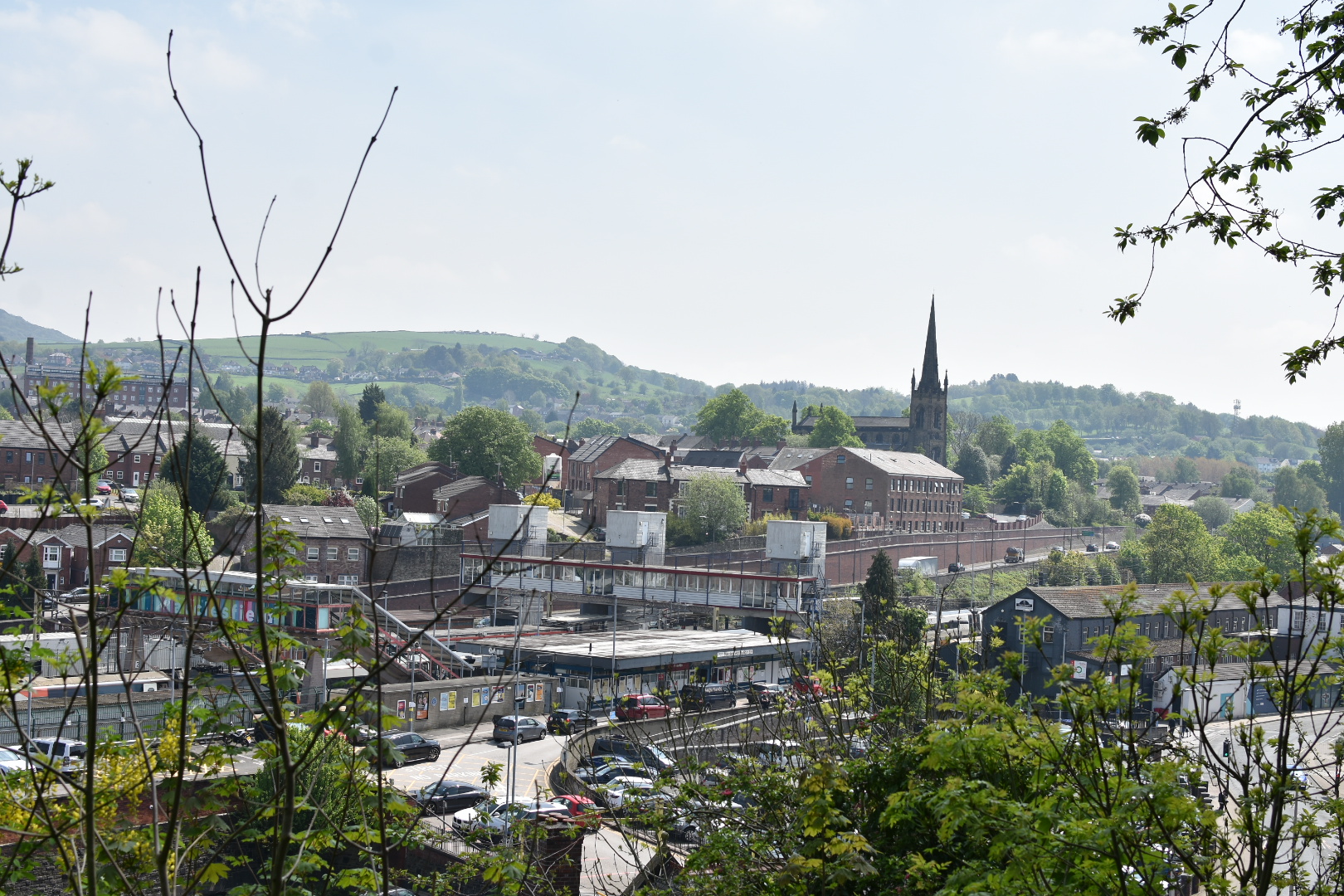
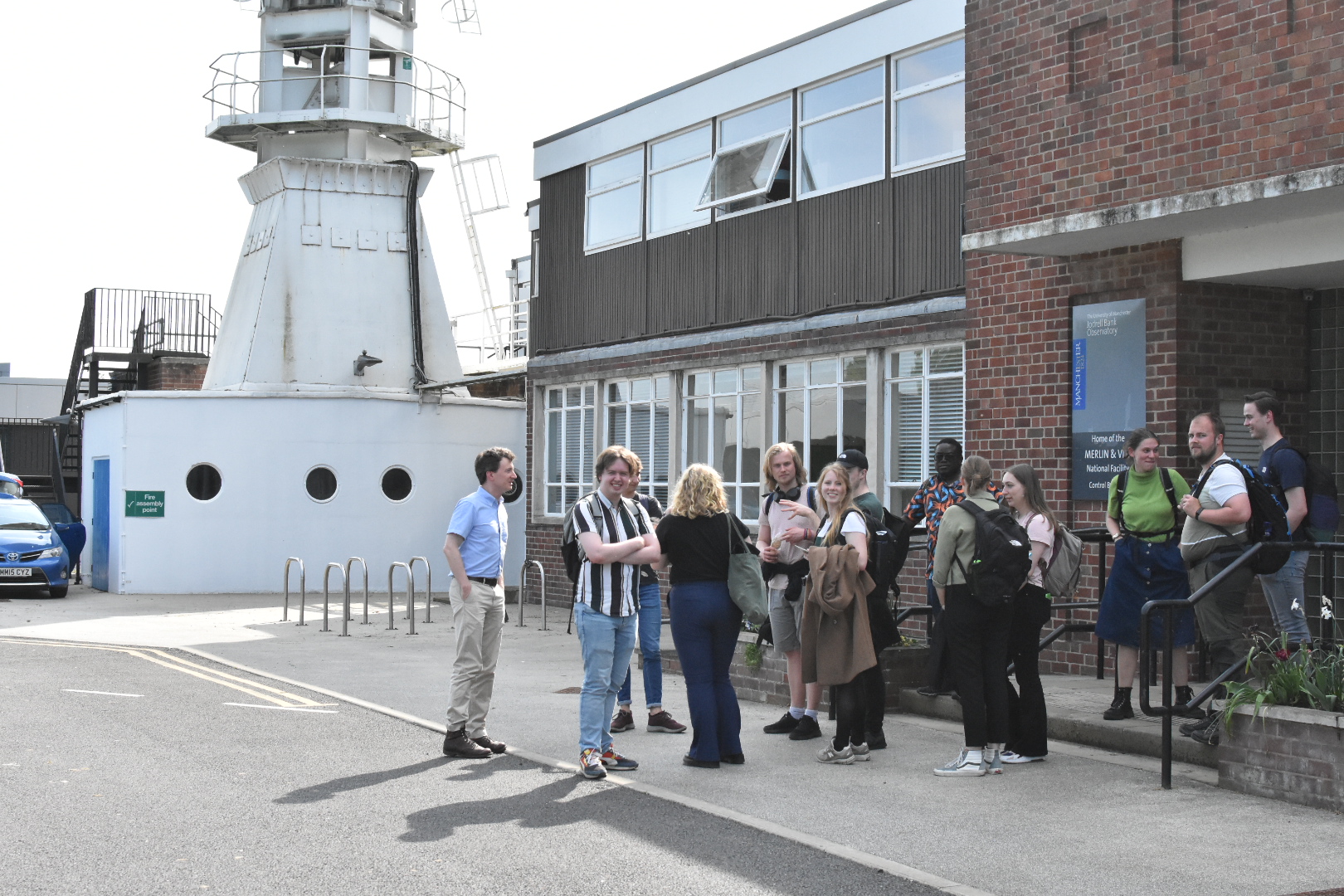
After a while, however, someone looked a little closer at the data. It turned out that most of these signals arrived around noon in the local timezone of the telescope in question. So what could it be? They figured out it indeed _was_ a microwave, but the effect was only detected when the microwave cycle was interrupted by opening the door. Then, the Faraday cage was open and the frequency of the microwave chirped down in frequency, just like a dispersive signal would. In the end, this explained a lot of the signals, but not all. Mitch was right and did find a new effect. Good work, Mitch.
Being fully rehydrated by the tea break, our hosts then took us for a tour around the site and the Lovell control room. In the control room, the most pleasantly sarcastic man was in charge of the telescope that day. He explained the '70's control panels and let us look through his -- cough -- antique binoculars.
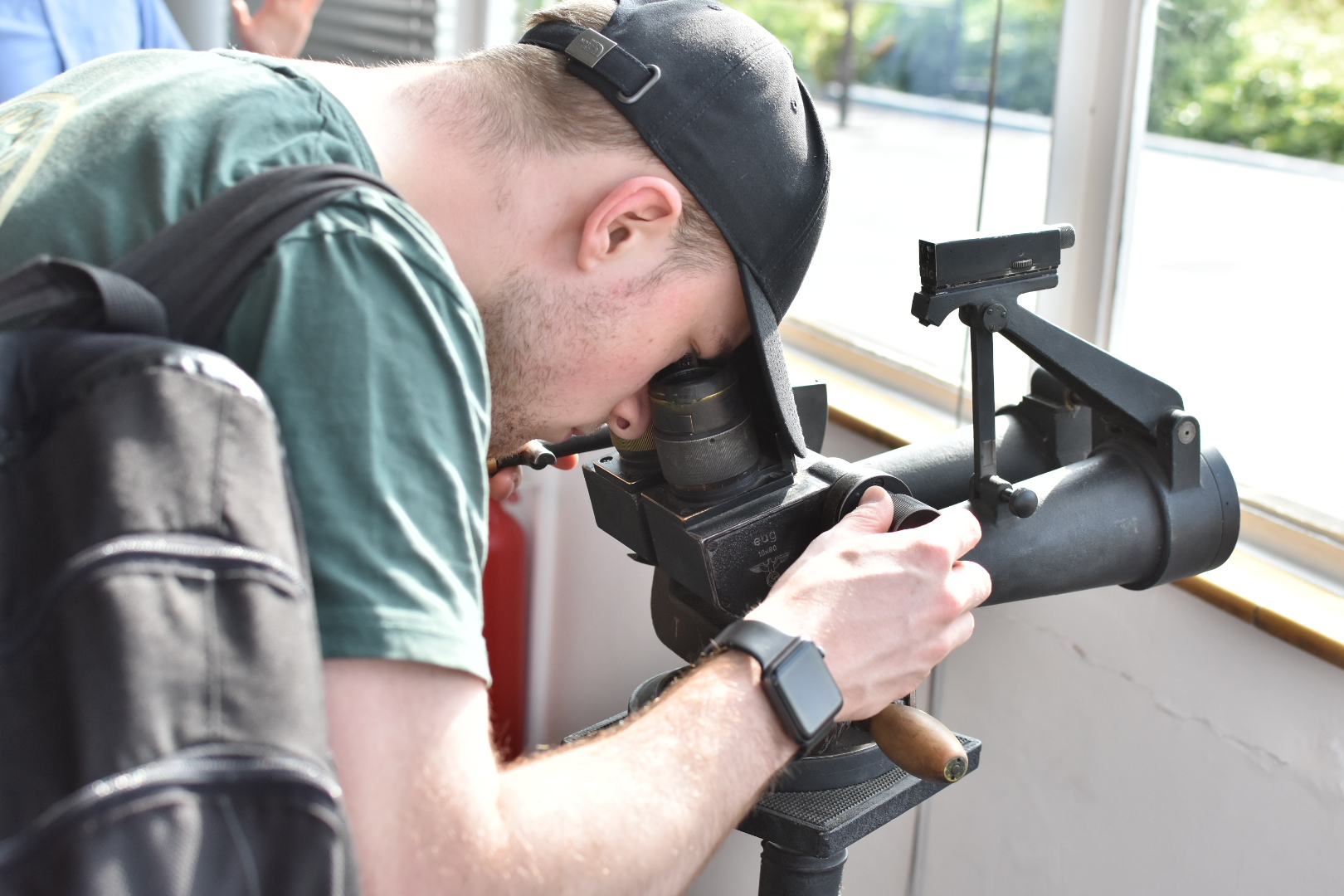
The visit was quick, and as it was 17:00 already, we had to get back to the bus. A quick photoshoot of Anthony, our hosts, and us as group wrapped it all up.
Back in Manchester, Pjotr and I walked the full 45 minutes home to get a look into the city. Unlike my initial impression, it was a lot more beautiful walking through the small alleys and seeing weird, industrially themed cafes. At home, a group had decided to cook for us all. Falafel-filled pitas with lots of garlic sauce pleased us all.
The final event of the night was the second semifinal of the Eurovision Song Contest. From one bedroom, we all watched and enjoyed the sight of horribly bad acts alternated by truly memorable Eurovisionesque masterpieces. Let's hope the best for Saturday.
Cheers, Kees
----
Vandaag was de dag van ons voorlaatste instituutbezoek: een bezoek aan het Jodrell Bank Observatory. Dit zou ook mijn tweede en laatste bericht op deze blog worden. Laten we mijn dag eens doornemen.
Voor mij begon de dag met een ontbijt bij Ford Madox Brown, een restaurant dat deel uitmaakt van de Wetherspoon-keten. Hoewel dit geen advertentie is, vond ik dat ik hun bestaan moest vermelden, omdat hun lage prijzen samen met hun goede voedselkwaliteit uitstekend zijn. Dat kan handig zijn voor toekomstige reizen ;). Het ontbijt met Pjotr, Marcel, Ties, Romy, Saskia, Thomas en Nino was een geweldig begin van de dag.
Na het ontbijt verzamelden we bij het appartement en vertrokken we met de bus richting Manchester Piccadilly station. Vanaf daar namen we de trein naar Macclesfield, waar we zouden worden opgehaald door een gehuurde bus om naar het observatorium te gaan. Ons verblijf op het station duurde echter iets langer dan verwacht, omdat de bus een lekke band had en er vervanging moest worden geregeld. Dit gaf me ruim twintig minuten om door de stad te zwerven. Dus, terwijl de rest van de groep genoot van de brandende zon rond het station, besloot ik de berg te beklimmen die ze het stadscentrum noemen. Ik passeerde kerken, straatmuzikanten en er heerste over het algemeen een goede sfeer. Ik vond een klein parkje met uitzicht op mijn collega's bij het station. Ik ging zitten en genoot van mijn schaduw tot een kat besloot om door het park te wandelen. "Ps ps", en de kat kwam voor een aai. Zie de bijgevoegde foto.
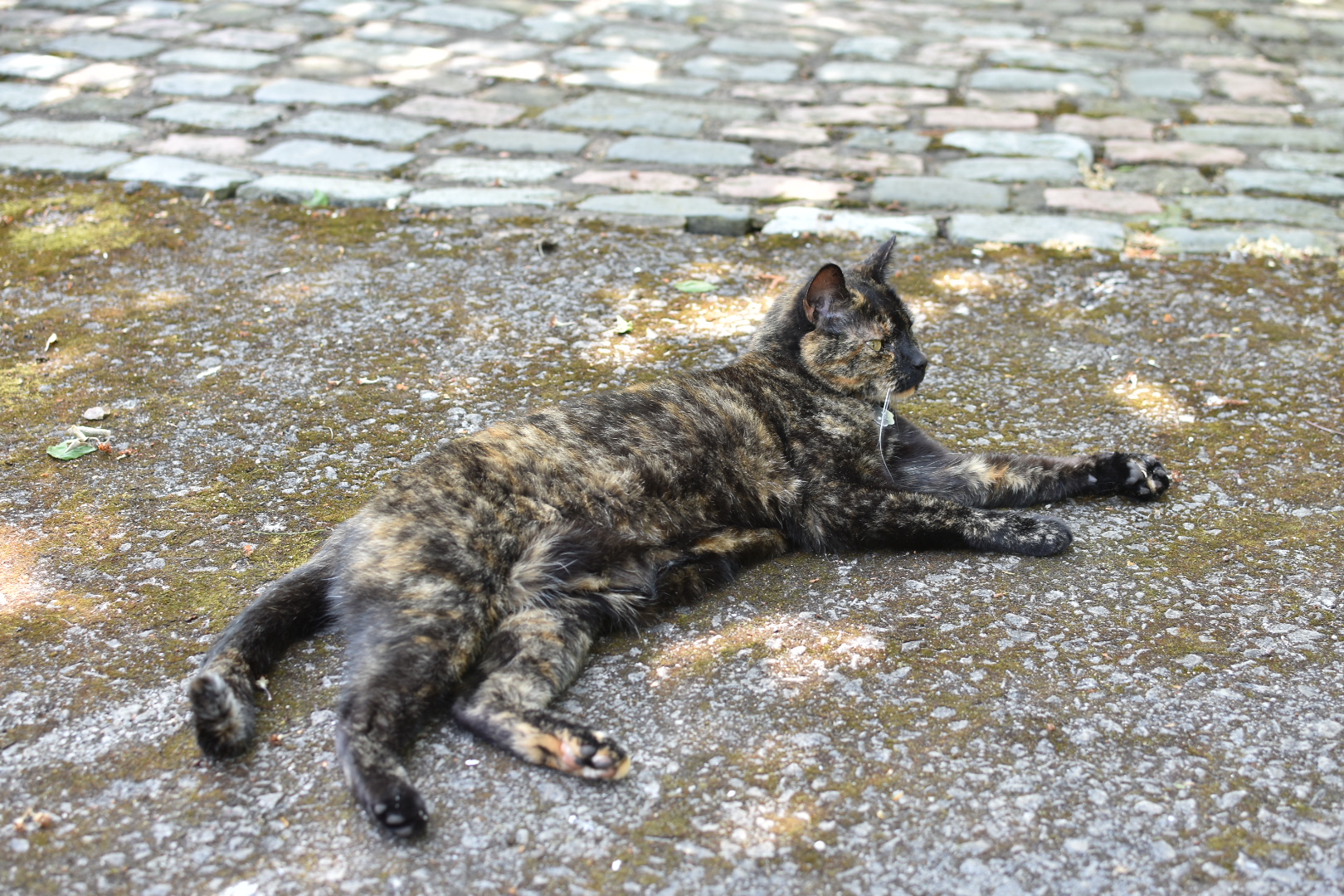
Toen stapten we eindelijk in de bus en reisden door België - althans, zo voelden de wegen aan. Door schapenvelden werden we plotseling begroet door de aanblik van een telescoop en een bord waarop stond dat we onze telefoons uit moesten zetten.
In een radiostil bos ver van Manchester staat een kudde radiotelescopen, omringd door een kudde schapen. Bussen vol schoolkinderen bezochten het bezoekerscentrum van het observatorium, maar wij kregen de exclusieve rondleiding achter de schermen. Na een snelle lunch met twee van onze gidsen, Justin en David, werden we binnengelaten in een collegezaal met uitzicht op de grote Lovell-telescoop voor twee lezingen over wat ze daar deden. Hoewel het een beetje afleidend was, maakte de enorme telescoop een indrukwekkende draai van 360° tijdens de presentatie. De belangrijkste focus van de waarnemers was het onderzoek naar pulsars, snel draaiende neutronensterren die elektromagnetische straling uitzenden door hun beweging en magnetisch veld. De tweede presentatie ging vooral over het observatoriumproject e-Merlin, een serie radiotelescopen waar Lovell deel van uitmaakte. Grappig genoeg was de tweede spreker een Nederlander.
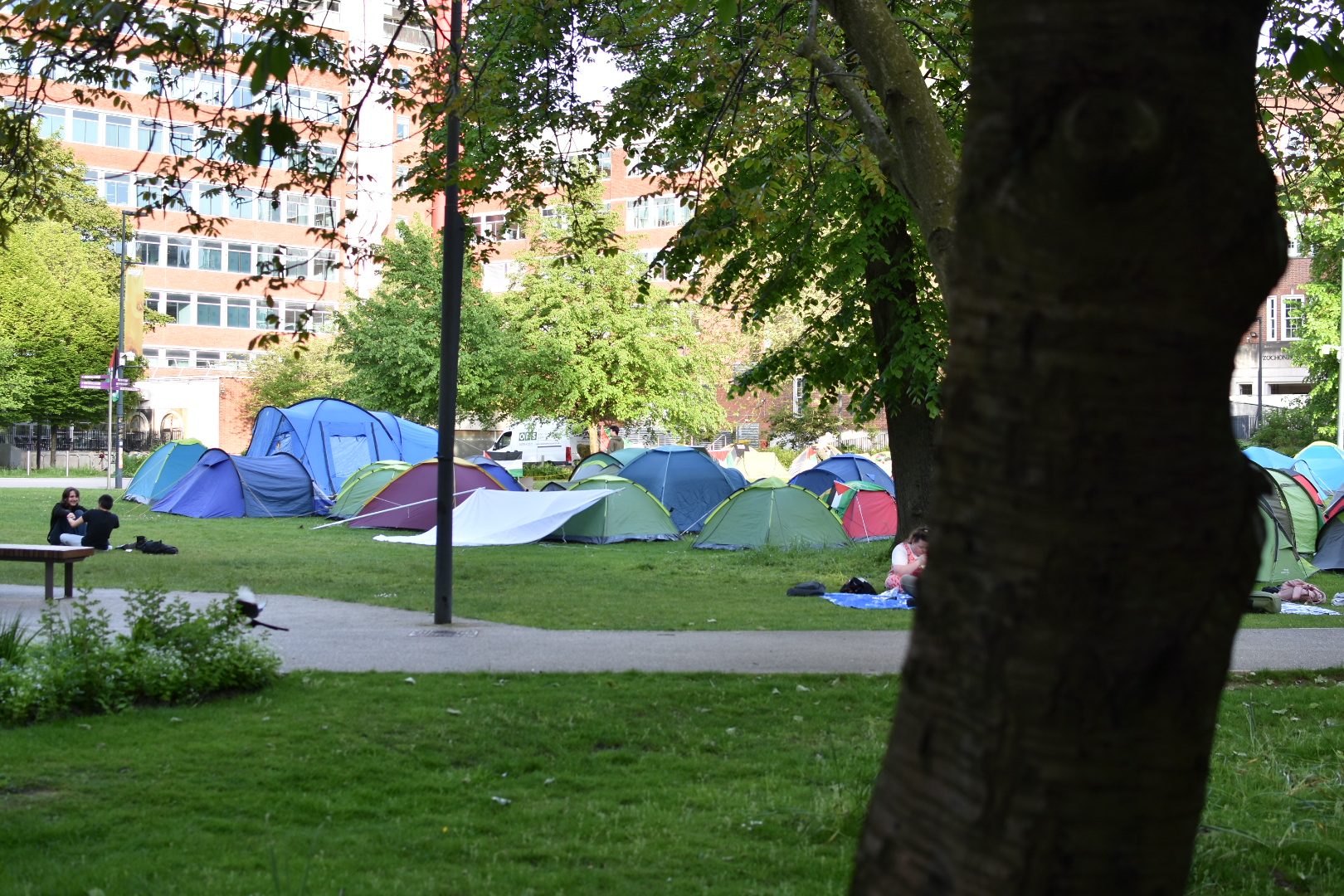
Na de presentaties kregen we een verplichte theepauze, met de keuze uit thee, thee met suiker, thee met melk en thee met melk en suiker. In de theesalon stond een magnetron in een zware kooi van Faraday. Omdat het een radiozone is, was dit logisch, maar het verhaal erachter was nog beter. Justin vertelde ons over de waarneming van een onregelmatige piek in het radiosignaal op de locatie. Een toenmalige promovendus die er nu nog steeds werkt, Mitch, besloot dit te onderzoeken. Ze sloten interferentie op de site uit. Ze testten het effect van het aanzetten van een magnetron tijdens het meten. De frequentie was te hoog om het signaal te verklaren. Andere apparatuur werd ook getest. Het moet een onbekend effect zijn, een hypothese die werd versterkt toen andere observatoria hetzelfde effect zagen, maar op verschillende tijdstippen. Het signaal leek zelfs op iets van ver weg door de dispersie-achtige tjirp in de aankomsttijd.
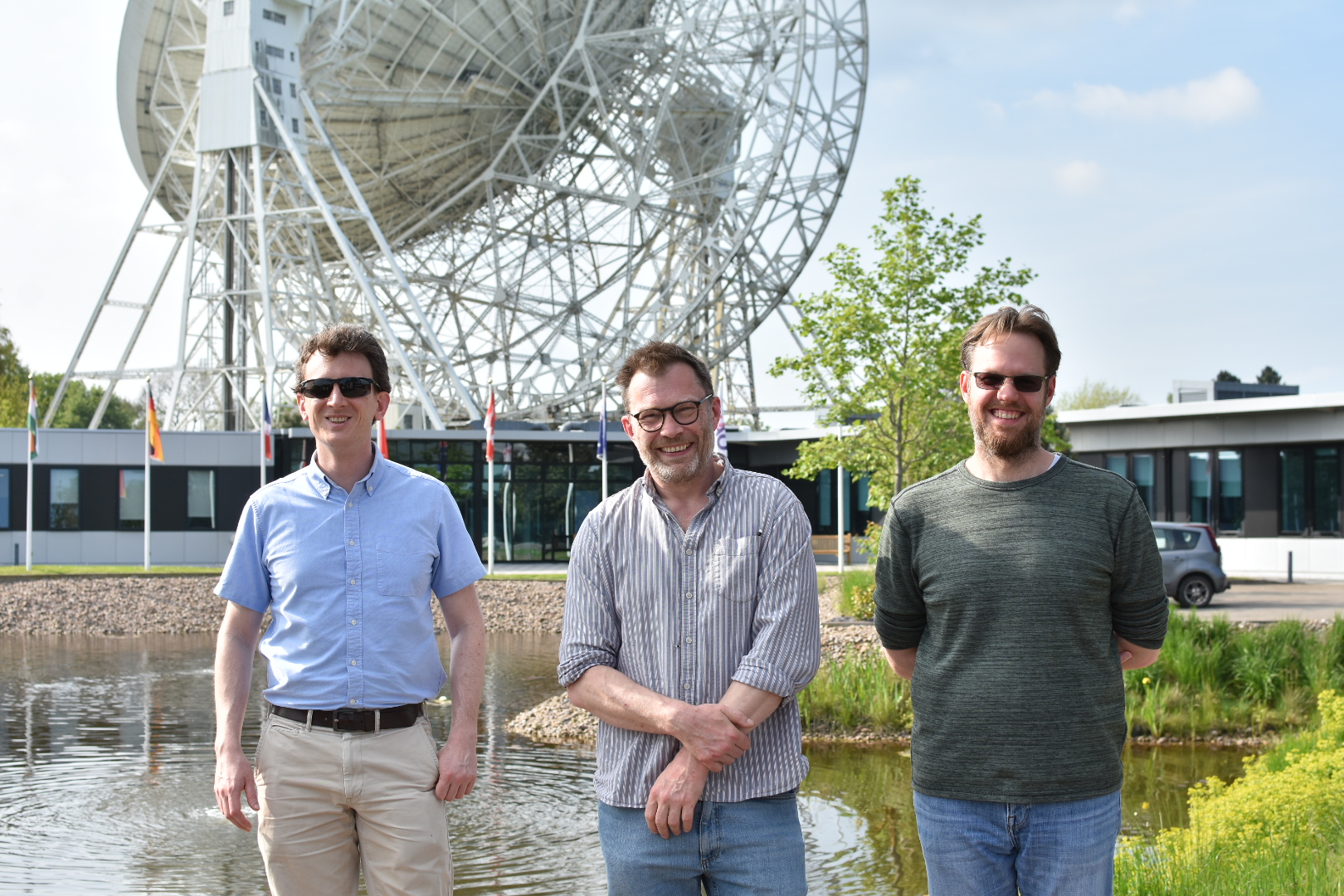
Na een tijdje keek iemand echter wat beter naar de gegevens. Het bleek dat de meeste van deze signalen rond het middaguur aankwamen in de lokale tijdzone van de telescoop in kwestie. Dus wat zou het kunnen zijn? Ze ontdekten dat het inderdaad een microgolf was, maar dat het effect alleen werd gedetecteerd als de microgolfcyclus werd onderbroken door de deur te openen. Dan was de kooi van Faraday open en de frequentie van de microgolf tjirpte naar beneden, net zoals een verstrooiend signaal dat zou doen. Uiteindelijk verklaarde dit veel van de signalen, maar niet allemaal. Mitch had gelijk en vond een nieuw effect. Goed werk, Mitch.
Na volledig te zijn gerehydrateerd door de theepauze, namen onze gastheren ons mee voor een rondleiding over de site en de Lovell-controlekamer. In de controlekamer had die dag de prettig sarcastische man de leiding over de telescoop. Hij legde de bedieningspanelen uit de jaren '70 uit en liet ons door zijn -- kuch -- antieke verrekijker kijken.
Het bezoek was snel en omdat het al 17:00 uur was, moesten we terug naar de bus. Een snelle fotoshoot van Anthony, onze gastheren en ons als groep maakte er een eind aan.
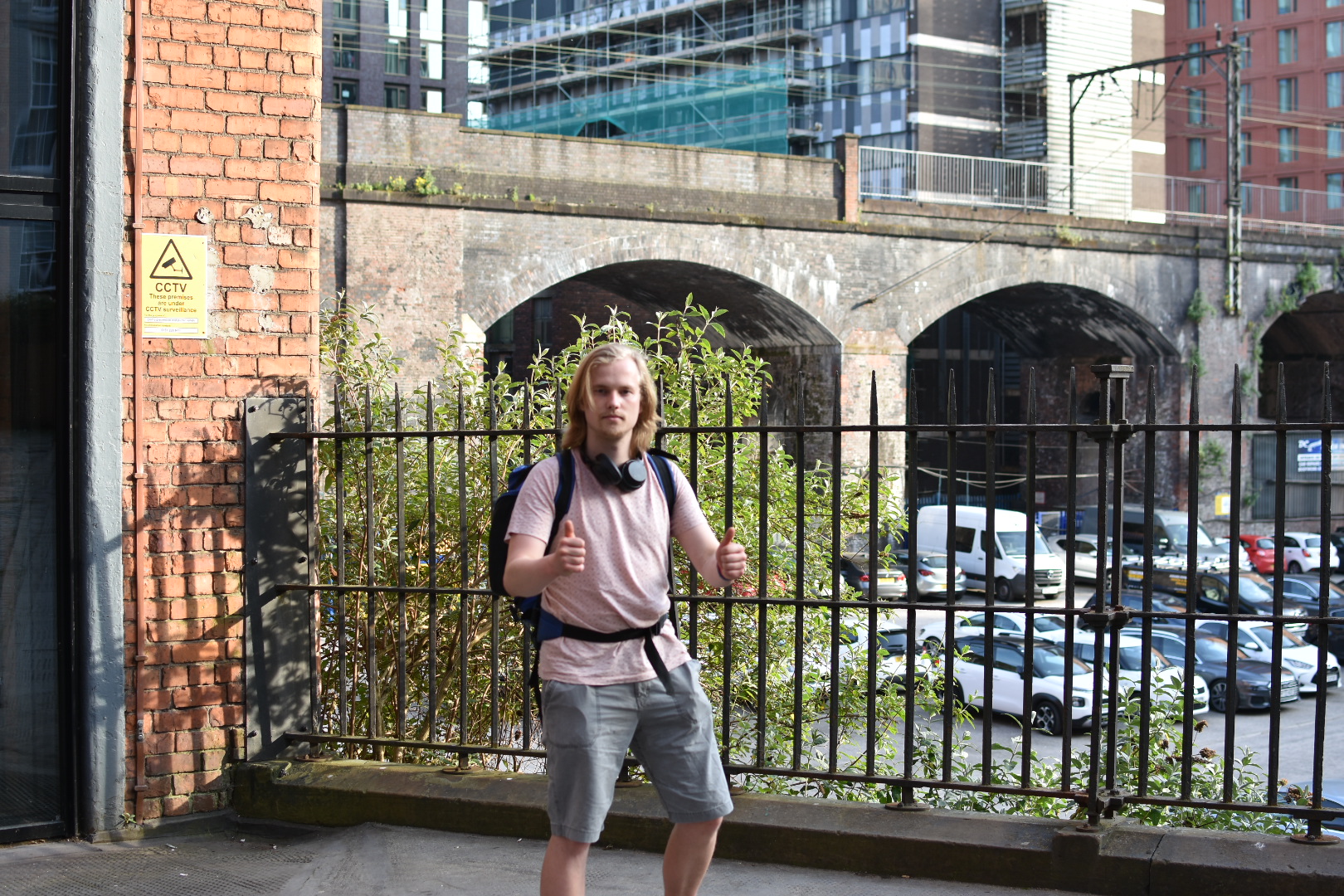
Terug in Manchester liepen Pjotr en ik de volle 45 minuten naar huis om de stad te bekijken. In tegenstelling tot mijn eerste indruk was het veel mooier om door de kleine steegjes te lopen en rare, industrieel gethematiseerde cafés te zien. Thuis had een groep besloten om voor ons allemaal te koken. Falafel gevulde pitas met veel knoflooksaus bevielen ons allemaal.
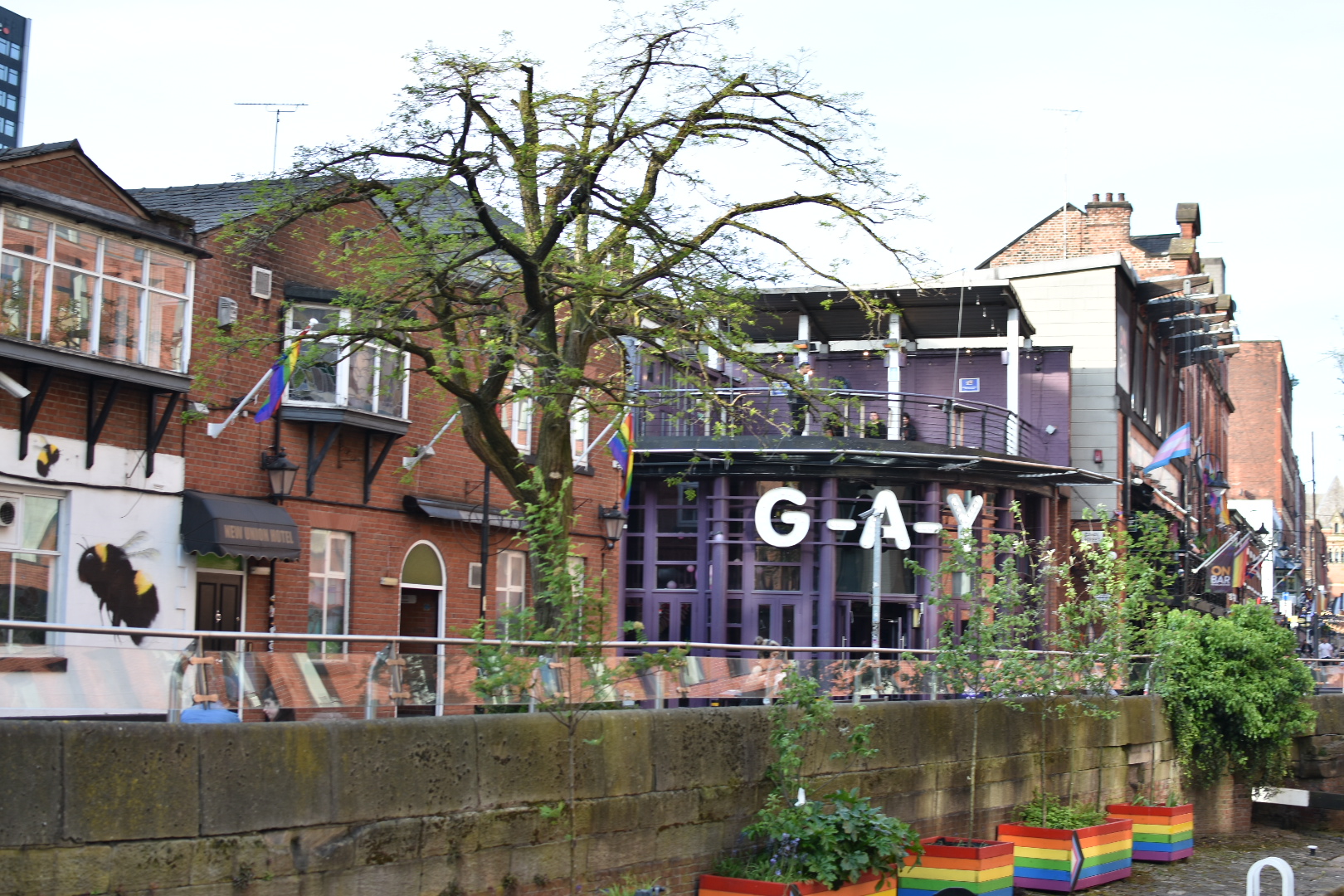
Het laatste evenement van de avond was de tweede halve finale van het Eurovisiesongfestival. Vanuit één slaapkamer keken we en genoten we van de aanblik van verschrikkelijk slechte acts, afgewisseld door echt memorabele Eurovisie-eske meesterwerken. Laten we het beste hopen voor zaterdag.
Proost, Kees